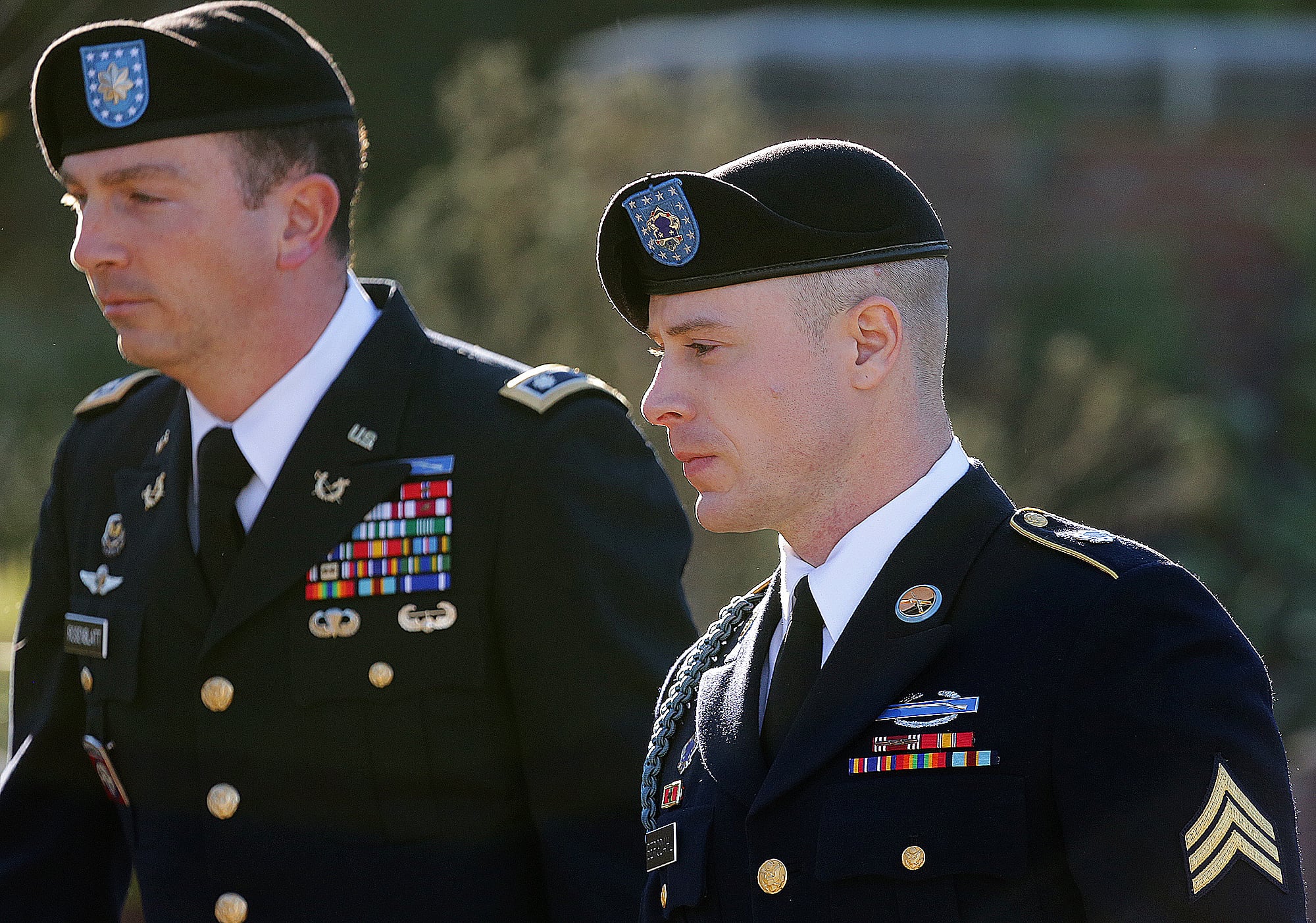Editor's note: The following is an opinion piece. The writer is not employed by Military Times, and the views expressed here do not necessarily represent those of Military Times or its editorial staff.
Last week, Army judge Col. Jeffrey Nance declined to order Sgt. Bowe Bergdahl to serve jail time during the sentencing phase of Bergdahl’s trial for desertion and misbehavior before the enemy.
This trial capped an eight-year saga that elicited doubt among segments of the public that the Army justice system could remain independent in the face of unprecedented levels of political pressure. Regardless of public opinions surrounding Bergdahl’s sentence, the legal outcome in Bergdahl’s case reinforces the integrity of the military justice system.
The day after Bergdahl’s release in 2014, my phone blew up. I was the senior Army public affairs officer and spokesman for the Alaska-based unit Bergdahl was assigned to. While I was not assigned to the unit when Bergdahl deserted in 2009, it was my job to be familiar with the situation and to manage the associated media queries.
Local journalists rightfully wanted to know what would happen next. Would Bergdahl return to Alaska? What punishment might he receive? How were soldiers reacting to the news of Bergdahl’s return? I could say very little, except to reaffirm a key tenet of our ethos: we never leave a soldier behind. Regardless of the alleged circumstances behind Bergdahl’s capture, it was the right thing to bring him home.
RELATED

I read the classified investigation and knew many of the details that surfaced over the next three years. I spoke to members of Bergdahl’s unit who were intimately familiar with his disappearance and the subsequent search. I participated in Army-level conference calls that discussed his reintegration, his legal rights and how we should responsibly respond to questions about his then-alleged desertion.
Of course, I had formed a clear opinion. We all had. Those opinions didn’t matter. As representatives of the Army, we couldn’t allow personal opinions to cloud our professional judgment moving forward.
Over the next three years, the Army handled the case at the highest levels and weathered a maelstrom of media attention, politically motivated comments from both sides of the aisle, and a widely acclaimed podcast wrought with sympathy for the accused. Emotionally-charged rhetoric reached the entire country and much of the world, threatening to derail the judicial process due Bergdahl and every American soldier.
RELATED

The Army was powerless to silence the outside voices clamoring to shape the outcome of this case. Any effort would be futile. All the Army could do was keep its head down and keep faith in its legal system. A perfect system? Of course not. It is only as good as the integrity of those entrusted to carry it out.
Those involved in the case stuck to their doctrine and refused to cave to the outside pressures. That the Army stayed largely out of the fray of an endless list of politicians, pundits, speculative journalists and the American public’s court of opinion is a notable achievement. We do not publicly divulge or leak details of ongoing investigations. We will not speculate. Active duty military lawyers do not seek to influence public opinion through the media. Those involved do their best to stay out of the limelight, as anything they say publicly can negatively affect a case.
Army officials stayed true to the process: conduct an extensive investigation, make recommendations to the senior commander, and allow him to decide what, if any, charges to bring. While all of this may seem suspiciously slow and bureaucratic to an outside observer, it worked in this case. The process ultimately led to Bergdahl being charged with desertion and misbehavior before the enemy and subsequent court martial. No small feat considering the circumstances.
RELATED

I believe the Army got it right and upheld its responsibility to its soldiers and to the nation. Not doing so would have sent a decapitating blow to commanders at all levels and shaken the bedrock of the Army belief system.
Judging the integrity and effectiveness of the military justice system solely on the basis of Bergdahl’s punishment is shortsighted and overlooks a much larger picture.
Broad-ranging opinions of Col. Nance’s sentencing decision aside, the Army sent three clear messages. First, desertion is criminal and will not be tolerated. Second, soldiers’ personal interests never outweigh their duty to the mission or to their teammates. Third, despite unsolicited political and media pressures, the Army trusts its leaders to do their jobs.
Underscoring these critical messages is far more important to the long-term integrity of the Army then the severity of the punishment that one individual receives.

Lt. Col. Alan Brown is an assistant professor in the Department of English and Philosophy at the United States Military Academy at West Point, New York. He served as the chief of public affairs for U.S. Army Alaska from 2013 to 2016. His opinions are his own and do not reflect any official policy of West Point, the Army or the Department of Defense.





